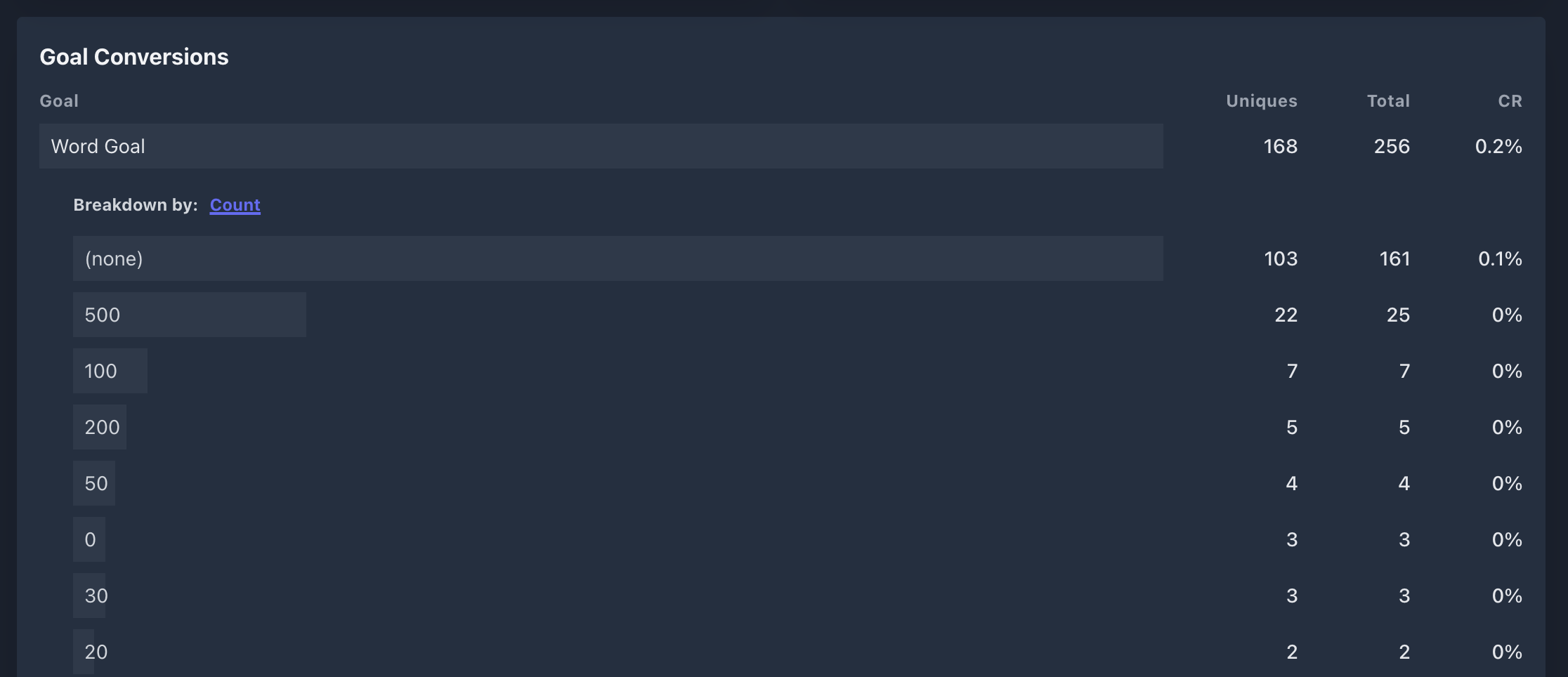Some months ago blank.page experienced an unexplained surge in traffic that caused a significant bill on Rene’s finances. Though we had Netlify Analytics, it was completely useless at giving us any insight into the nature of this traffic, as was Netlify’s customer support—which we can’t blame, as we were on the free tier. If you get hit by an incident like this, you’re on your own.
In our scramble to figure out what was going on, the devil appeared: Google Analytics showed up in its business suit, looking slick in nerdy glasses and its multi-color tie. We just wanted to find the source of this traffic, but Analytics showed us a little more than that. As in Goethe’s Faust, Google promised infinite knowledge about blank.page’s users, giving us teasers of the kind of data we could obtain. When you type on blank.page the title of the page updates—so within Google Analytics by default we were reading into the first 8 words of each document that was typed in, as page titles. This was immensely provoking, as was the other wealth of information which gave us a taste of the omniscientia G. Analitics provides.
As tantalizing as it was, we broke from the spell and uninstalled this delicious poison. But the taste of it left us wanting. René has sweated every single pixel of that UI as to ruin it with a cookie banner. As Mexicans, we are not afraid of bending the law here and there, but only when the risk is carried on our own person. Tracking users and not telling them is a clear violation of this principle.
Fortunately, providence came in the form of a two person bootstrapped company which caters to misfits, idealists, rebels from this horrible marketing machine that the internet has become.
Plausible is a lightweight and open source web analytics. No cookies and fully compliant with GDPR, CCPA and PECR. It doesn’t come out cheap at $20 per month, but as they say: when the product is free, you are the product.
Over the last few days I’ve implemented some basic user metrics which are completely anonymous. With this we get some information about how features are used, for example, here’s how many people have used the word goal:

It’s still too early to glean any useful information. User metrics are an extremely tricky—and often misleading bit of information. I’ll write about this when we obtain more experience, but I can already see some places where some decisions could go astray. Design should be data informed, not data driven, and a good amount of wisdom is required to make good data informed decisions.
Until then, I encourage you to buy René a coffee, which he will put on my table so that I can fuel myself for some more Blank Page coding.